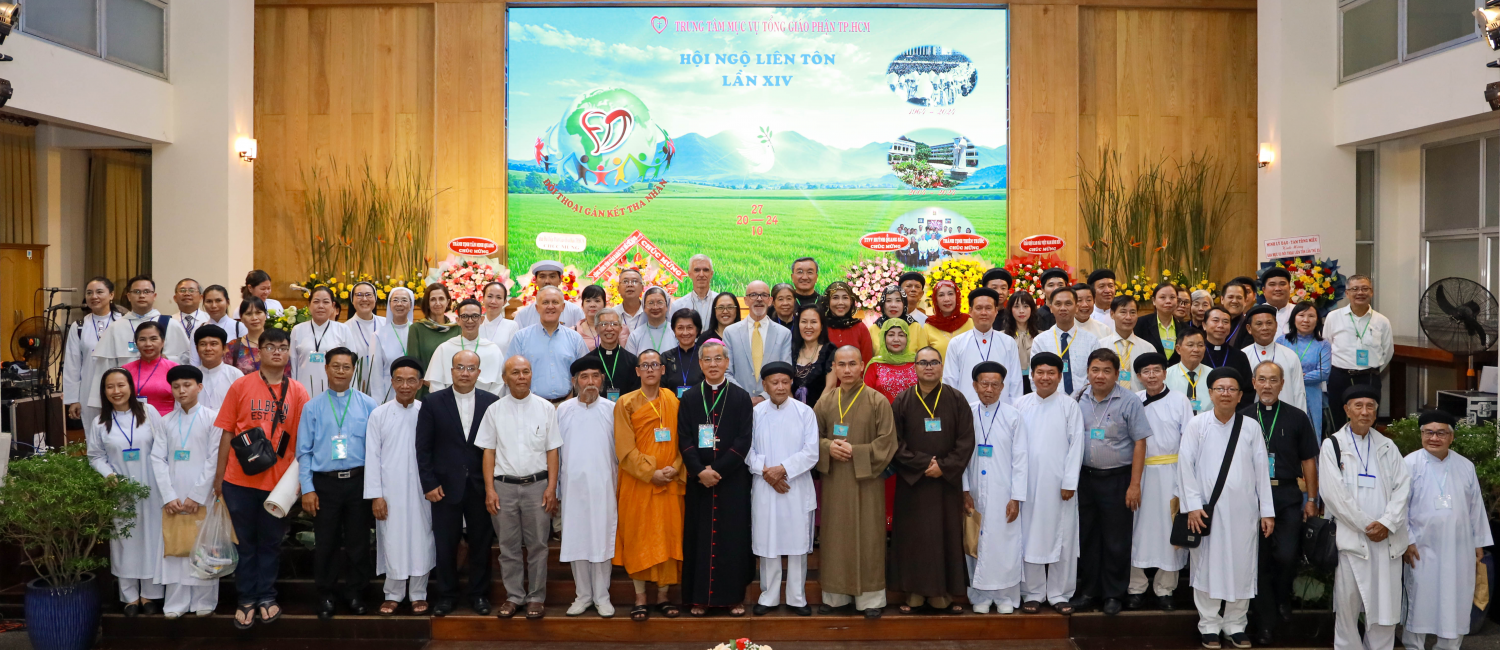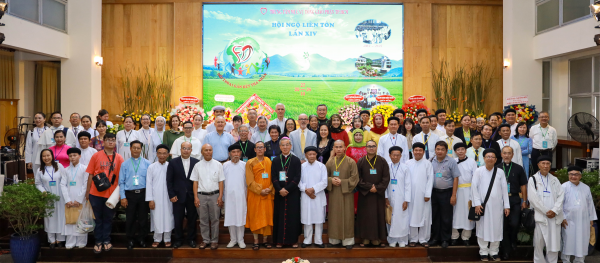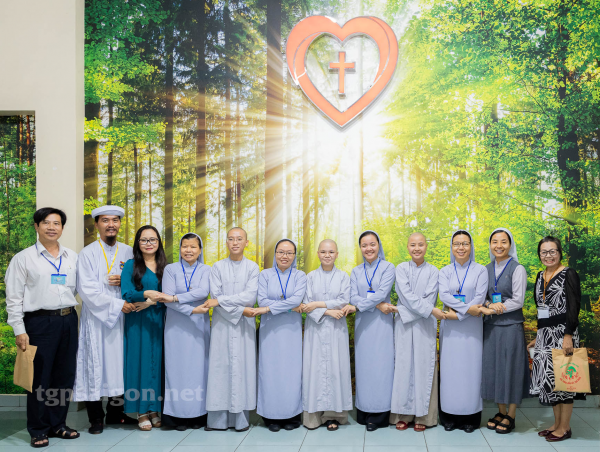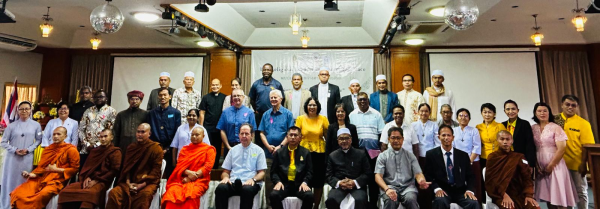
The 14th Interfaith Reunion, hosted by the Archdiocese of Saigon on Sunday, October 27, 2024, was a vibrant gathering that brought together a rich tapestry of diverse religious representatives. The inclusive event included participants from Baha’i, Cao Dai, Islam, Minh Ly, Buddhism, Hoa Hao Buddhism, and Catholicism. The theme, ‘Dialogue Connecting People,’ served as a unifying thread, weaving through the well-set program, divided into three sections: Religion & Dialogue, Dialogue Experience, and Prayer for Peace.

In the Religion & Dialogue section, representatives of three religions shared about:
– The spirit of dialogue and religious harmony according to the Baha’i teachings
– Interfaith practice in Cao Dai
– Communication between followers of religions (by a Buddhist monk)
In the Dialogue Experience section, representatives of three groups shared about:
– Minh Ly Dao and interfaith dialogue
– Experience of interfaith dialogue in the world by a representative of the Focolare Movement
– Experience of interfaith dialogue in Vietnam, presented by the Bishop in charge of the Office of Ecumenical and Interfaith Dialogue of the Vietnamese Bishops’ Conference (via video clip)
In the last section, eight representatives of these religions offered prayers for peace, victims of wars, natural disasters, and diseases, and those who care for them. At the very end, everybody stood and sang solemnly the prayers of Francis Assisi.[1]

The Interreligious and Intercultural Dialogue in Thailand, organised by the Marist Fathers last September,[2] significantly influenced my spiritual growth journey. This profound growth and learning experience inspired me to attend the Interfaith Reunion for the first time in my country, Vietnam. It also helped me approach my interactions with brothers and sisters of other faiths with a newfound sincerity and respect for their beliefs.

This personal growth and transformation is a testament to the power of interfaith dialogue in shaping my spiritual journeys.
Throughout the meeting, I had to work with my inner self, mind and heart to listen to others with respect and appreciation instead of listening to them with judgment. It was not easy because discrimination had formed in me for a long time. Henri Frederic Amiel was right when he observed, “There is no respect for others without humility in oneself.” Indeed, breaking down prejudices to build bridges for dialogue cannot be done overnight but requires perseverance and humility. This journey of self-examination and enlightenment is an essential part of the experience of interreligious dialogue. It is not just external forms or purely intellectual, but a silent struggle, a slow inner effort, a humble prayer to let God’s grace work and transform us internally.
I feel God’s presence most acutely in my dialogues with others and myself. God continues shaping and moulding me, and I am deeply grateful.
[1] Refer to the article and pictures from https://tgpsaigon.net/bai-viet/hoi-ngo-lien-ton-lan-thu-xiv-cua-tong-giao-phan-sai-gon-76094, 28 October 2024.
[2] Marist Mission Workshop 4-27 September 2024, Ranong, Thailand.
Maria Minh Tien, RNDM